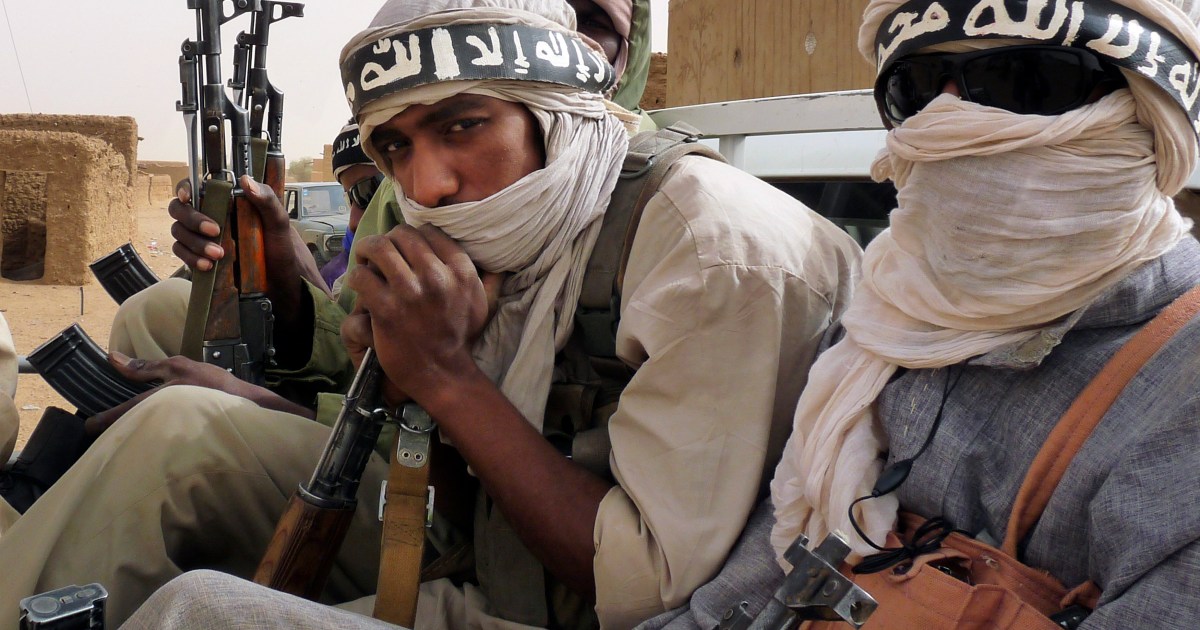The French magazine Le Point said that jihadist movements and Russian mercenaries are undermining the security of the Sahel region and posing a growing threat to the countries of the Maghreb.
And the magazine explained - in a report prepared by Benoit Delmas - that the borders of the Sahel region, though far from the shores of the Mediterranean, are close to it due to the absence of any water or other barriers in that vast desert, which facilitates the movement of professionals spreading chaos and smugglers.
Under the title "The State of 'Sahelistan' in the Great Sahara" raises concern in the Maghreb," Delmas says that what is going on in that desert, which extends from Mauritania in the west to Sudan in the east, appears to be the fate of the Sahel region, where two groups are active, the Islamic State and Al-Qaeda, They are intent on undermining stability and calm in the Sahel, especially in Mali, Burkina Faso and Niger, countries where most of their civilian casualties fall.
Despite previous official assertions denying the existence of any evidence of infiltration from the center of the Sahel region towards the Maghreb, where the Malian desert and its Libyan counterpart meet, two years of the Corona crisis and the resulting repercussions crushed the economies of the already failed Sahel countries, as well as a war in Ukraine and what resulted It has global repercussions that changed geopolitical trends, according to the author.
The writer believes that the dangers have increased in the region due to the spread of the phenomenon of terrorism and mercenary and the confrontation between Russia, France and the European Union, in addition to the disintegration of some countries, so that the rule of Bamako became in the hands of putschists. Ouagadougou also witnessed a coup, and thus the borders of the region are no longer secure, knowing that Mali and Niger have very long borders with Algeria and Libya.
Violence and smuggling
Le Point's report shows that the fires of jihadist movements in the Sahel region are destroying borders and countries, as there are two groups in the region, the Islamic State in the Greater Sahara and the "Ansar al-Din" movement, with which there are clashes despite their pursuit of the same goal of imposing Islamic law in the region.
The report indicates that this religious facade of the two organizations hides another crime, no less dangerous than violence, which is the massive smuggling operations that are taking place in the region.
The writer believes that the enthusiasm of the supposed jihadi organizations to achieve these goals has not prevented their hunger for money, as they seek to obtain euros and dollars and exchange goods, and there are real exchange offices, smuggling businesses, and manipulate customs and tax officials, and smugglers can transport everything from air conditioners to coffee and grains. .
The writer cautioned that there is a relationship between Russia and what is happening in the region, as evidenced by the return of a plane belonging to the Malian government from Moscow carrying what could be said as "orders for the putschists" a week after their decision to leave the Sahel group.
The writer points out that pressures are increasing on African countries that believe that they have nothing to do with the war that Russia is waging in Ukraine, due to the lack of food, which is more deadly than the Kalashnikov in a continent that lacks wheat, bread and the stability of power, and imports half of its wheat needs from Russia and Ukraine, Which means that smuggling networks will make staggering profits from smuggling wheat during this food crisis.
The Maghreb is under threat from the Sahel
The writer concluded that danger indicators increased in Algeria, Libya, Tunisia and Morocco, and Tunisia did not remain immune from what is happening in the region, as it was subjected to 3 major terrorist attacks in 2015, and its economy was severely damaged as a result, while Libya defeated ISIS in its lands after fighting surly.
After 7 years of fighting these organizations, the writer says that the Maghreb is still under threat from the Sahel region, where a violent war is taking place in that hot desert, and it announces from time to time the elimination of jihadist leaders without this leading to the elimination of these organizations and its operations in the region.

